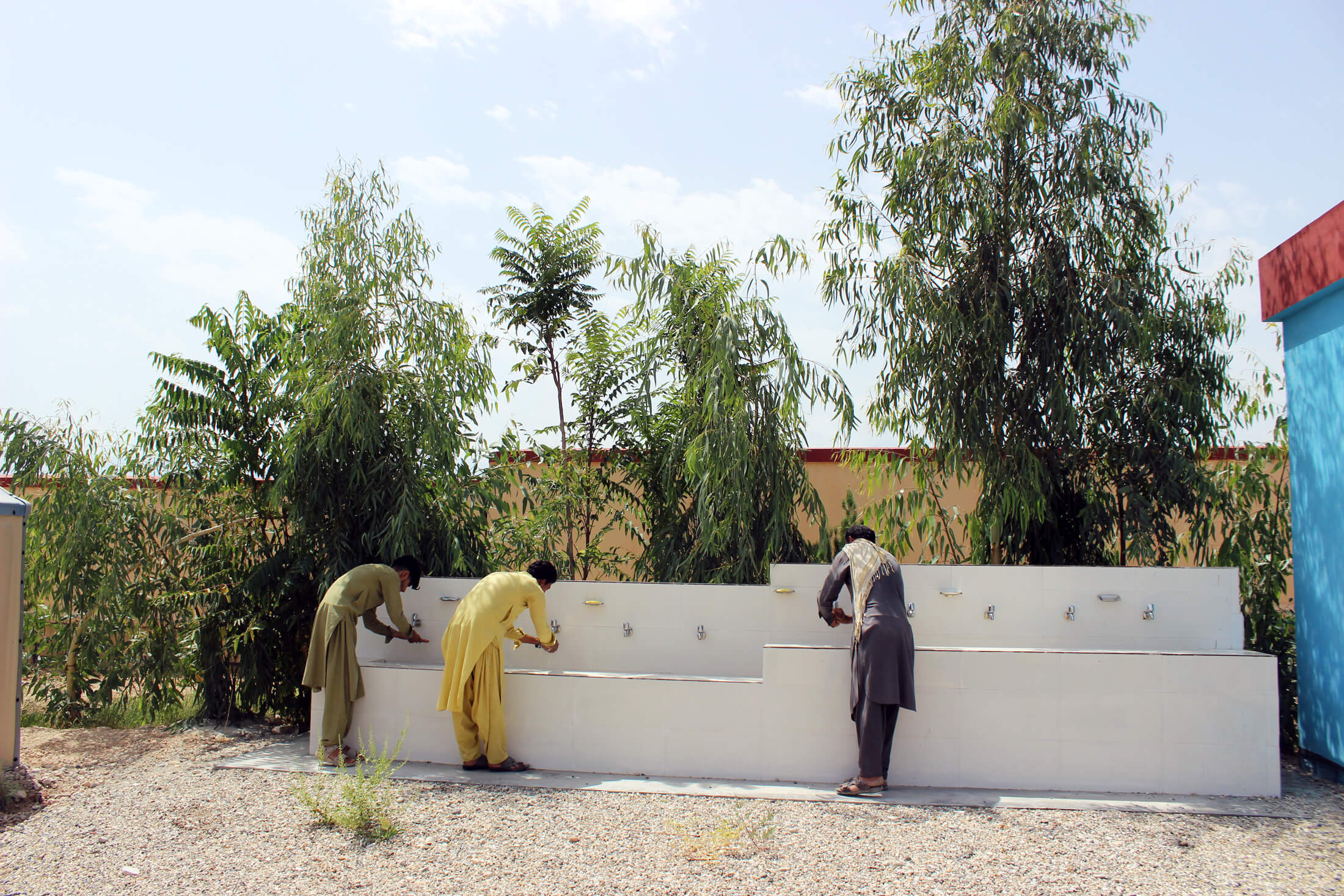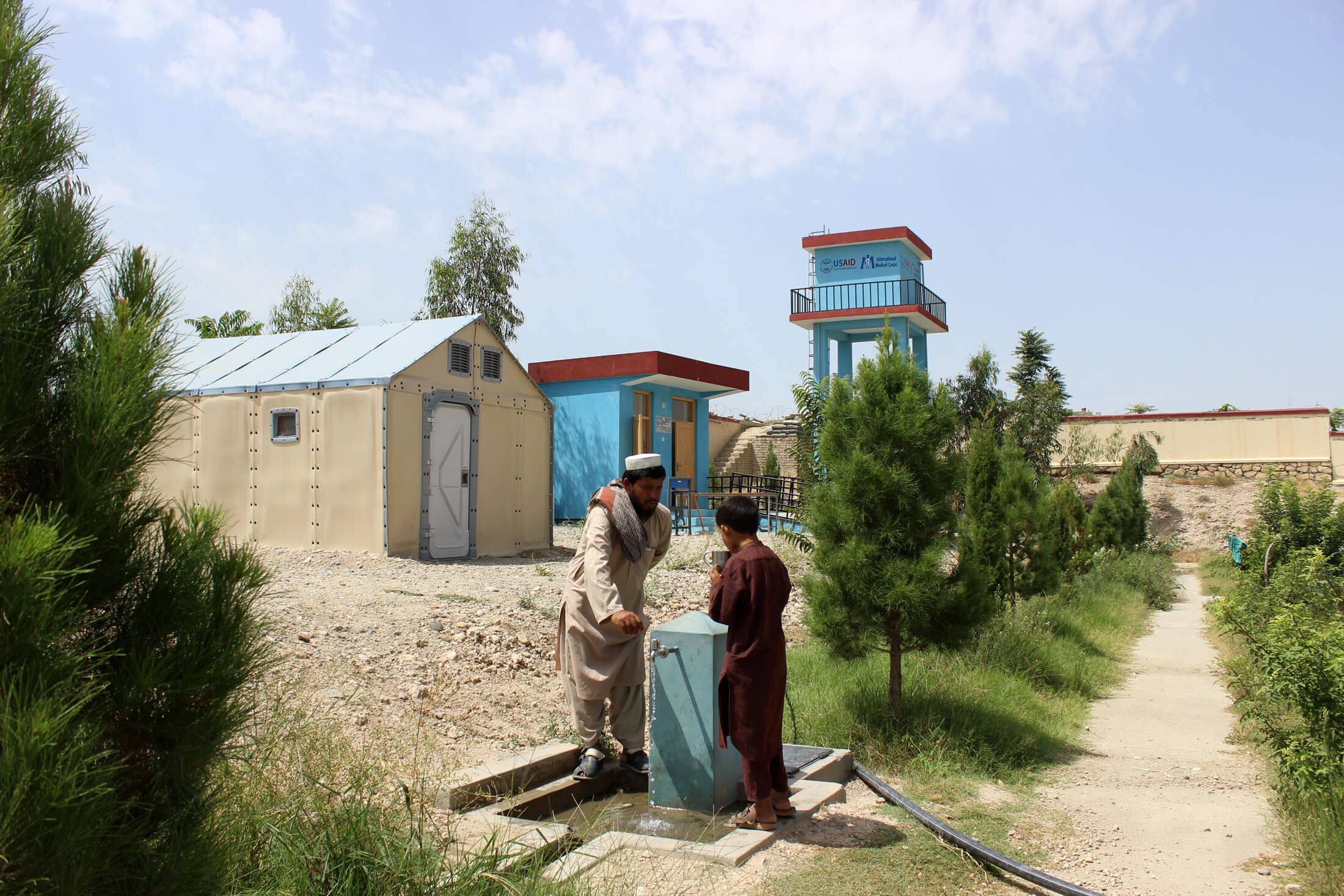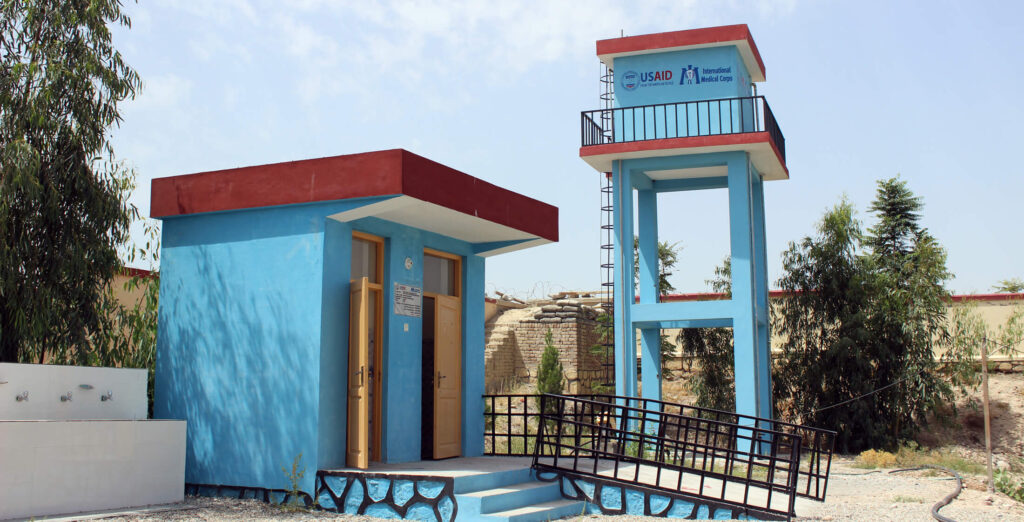In rural Afghanistan, a lack of clean water and modern sanitation and hygiene can profoundly affect the quality of healthcare services. According to UNICEF, about 35% of health facilities in Afghanistan lack safe drinking water, functional toilets, handwashing stations and proper waste disposal systems—all of which are critical for effective infection prevention and control. Addressing water, sanitation and hygiene (WASH) issues in rural health facilities is essential to creating a safe and sanitary environment that ultimately improves healthcare outcomes in underserved communities.
“Inadequate WASH infrastructure makes it nearly impossible to provide effective healthcare services,” explains Syed Yasir Ahmad, Senior WASH Advisor with International Medical Corps. “Without access to safe water, handwashing stations and modern toilets, preventable diseases—such as cholera and acute watery diarrhoea—can spread unchecked, often leading to death among children and vulnerable adults.”
Pewa Health Facility, situated in the heart of the Rodat district on the country’s eastern border with Pakistan, serves approximately 1,200 patients and their caregivers each day. Despite its critical mission, the facility faced significant challenges, including inadequate sanitation and restricted access to clean water for drinking and handwashing. These deficiencies compromised the health and safety of everyone seeking care.
In response, International Medical Corps decided to launch a project to transform the health centre into a safer and more hygienic environment. The project involved building two well-designed and fully equipped toilets that would accommodate people with disabilities and provide patients and their families with clean and private sanitation facilities. The WASH team also installed a dedicated handwashing facility next to the toilets, reducing the risk of infections, and established a sustainable supply of clean water for patients, caregivers and staff, eliminating dependence on contaminated sources.
Community residents Azizurahman and Shakirullah say the facilities have really helped.

“Previously, we faced many challenges at the health facility due to inadequate sanitation and clean drinking water,” says Azizurahman.
“We had to travel long distances to access wells and sanitation facilities,” explains Shakirullah. “Now, with these new facilities, many of these problems have been resolved.”
The project’s effect on Pewa Health Facility and the surrounding community has been profound. Once burdened by poor sanitation and limited access to clean water, patients and caregivers now experience improved dignity and peace of mind. The staff can provide services in a safe and hygienic environment, enhancing the overall quality of care.
A comprehensive survey revealed that 99% of households felt the project effectively addressed their needs, 100% found the support highly valuable, and 99% were satisfied with the quality of the assistance. The project’s ability to provide safe drinking water has been transformative, with every household in the community now collecting water from the new sources established by International Medical Corps.

All the survey respondents reported that the new water supply systems have improved safety for women and children when accessing water, while 96% of households experienced a reduction in waterborne diseases, 98% reported improved water access and 98% spent less time fetching water.
International Medical Corps provides WASH services to internally displaced persons, returnees, host communities and refugees in provinces across Afghanistan, reaching nearly 230,000 people last year alone. Learn more about our work in Afghanistan.
Donate to International Medical Corps today to help crisis-affected people around the world.
